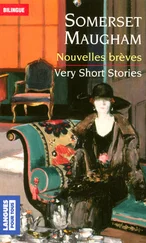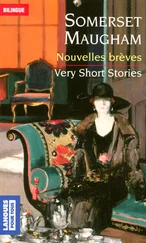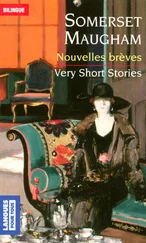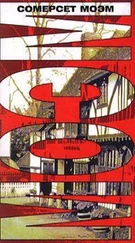Уильям Моэм - Узорный покров - английский и русский параллельные тексты
Здесь есть возможность читать онлайн «Уильям Моэм - Узорный покров - английский и русский параллельные тексты» — ознакомительный отрывок электронной книги совершенно бесплатно, а после прочтения отрывка купить полную версию. В некоторых случаях можно слушать аудио, скачать через торрент в формате fb2 и присутствует краткое содержание. Жанр: Классическая проза, на русском языке. Описание произведения, (предисловие) а так же отзывы посетителей доступны на портале библиотеки ЛибКат.
- Название:Узорный покров - английский и русский параллельные тексты
- Автор:
- Жанр:
- Год:неизвестен
- ISBN:нет данных
- Рейтинг книги:4 / 5. Голосов: 1
-
Избранное:Добавить в избранное
- Отзывы:
-
Ваша оценка:
- 80
- 1
- 2
- 3
- 4
- 5
Узорный покров - английский и русский параллельные тексты: краткое содержание, описание и аннотация
Предлагаем к чтению аннотацию, описание, краткое содержание или предисловие (зависит от того, что написал сам автор книги «Узорный покров - английский и русский параллельные тексты»). Если вы не нашли необходимую информацию о книге — напишите в комментариях, мы постараемся отыскать её.
Узорный покров - английский и русский параллельные тексты — читать онлайн ознакомительный отрывок
Ниже представлен текст книги, разбитый по страницам. Система сохранения места последней прочитанной страницы, позволяет с удобством читать онлайн бесплатно книгу «Узорный покров - английский и русский параллельные тексты», без необходимости каждый раз заново искать на чём Вы остановились. Поставьте закладку, и сможете в любой момент перейти на страницу, на которой закончили чтение.
Интервал:
Закладка:
| I describe myself as a member of the Church of England, which I suppose is an inoffensive way of saying that you don't believe in anything very much ... When the Mother Superior came here ten years ago she brought seven nuns with her and of those all but three are dead. | Я причисляю себя к англиканской церкви. Это, пожалуй, самая безобидная формула, когда хочешь сказать, что, в сущности, ни во что не веруешь. Десять лет назад, когда аббатиса сюда приехала, она привезла с собой семерых монахинь, сейчас из них осталось в живых только три. |
| You see, at the best of times, Mei-Tan-Fu is not a health resort. | Понимаете, Мэй-дань-фу даже в лучшие времена не курорт. |
| They live in the very middle of the city, in the poorest district, they work very hard and they never have a holiday." | Они живут в самом центре города, в самом бедном квартале, тяжело работают и никогда не отдыхают. |
| "But are there only three and the Mother Superior now?" | - Значит, их теперь только три, не считая аббатисы? |
| "Oh, no, more have taken their places. | - О нет, кое-кто прибавился. |
| There are six of them now. | Сейчас их там шесть. |
| When one of them died of cholera at the beginning of the epidemic two others came up from Canton." | Одна умерла от холеры в самом начале эпидемии, тогда на ее место приехали из Кантона еще две. |
| Kitty shivered a little. | Китти поежилась. |
| "Are you cold?" | - Вам холодно? |
| "No, it was only someone walking over my grave." | - Нет, просто кто-то прошел по моей могиле. |
| "When they leave France they leave it for ever. | - Когда они уезжают из Франции, то уезжают навсегда. |
| They're not like the Protestant missionaries who have a year's leave every now and then. | Это протестантские миссионеры время от времени на год отбывают в отпуск. |
| I always think that must be the hardest thing of all. | Я всегда думаю, что это и есть самое трудное. |
| We English have no very strong attachment to the soil, we can make ourselves at home in any part of the world, but the French, I think, have an attachment to their country which is almost a physical bond. | Мы, англичане, не так крепко привязаны к земле, мы в любом уголке земного шара чувствуем себя как дома, а французов связывают с родиной прямо-таки физические узы. |
| They're never really at ease when they're out of it. | Вдали от родины они не могут жить полной жизнью. |
| It always seems to me very moving that these women should make just that sacrifice. | Это, мне кажется, самая серьезная из жертв, на которые идут эти женщины. |
| I suppose if I were a Catholic it would seem very natural to me." | Будь я католиком, это, наверно, казалось бы мне в порядке вещей. |
| Kitty looked at him coolly. | Китти бросила на него критический взгляд. |
| She could not quite understand the emotion with which the little man spoke and she asked herself whether it was a pose. He had drunk a good deal of whisky and perhaps he was not quite sober. | Волнение, с каким он говорил, было ей не совсем понятно: может быть, это поза, а может, виной выпитое виски? |
| "Come and see for yourself," he said, with his bantering smile, quickly reading her thought. | Он тут же разгадал ее мысль и улыбнулся. -Побывайте там, убедитесь сами. |
| "It's not nearly so risky as eating a tomato." | Это не так рискованно, как есть сырые помидоры. |
| "If you're not frightened there's no reason why I should be." | - Раз вы не боитесь, мне тоже нечего бояться. |
| "I think it'll amuse you. | - Я думаю, вам будет интересно. |
| It's like a little bit of France." | Увидите кусочек Франции. |
| XL | 40 |
| THEY crossed the river in a sampan.* A chair was waiting for Kitty at the landing-stage and she was carried up the hill to the water-gate. | Через реку они переправились в сампане. На пристани Китти ждал паланкин, в котором ее и внесли в гору, к "водяным" воротам. |
| It was through this that the coolies came to fetch water from the river and they hurried to and fro with huge buckets hanging from the yoke on their shoulder, splashing the causeway so that it was as wet as though it had heavily rained. | Через эти ворота кули ходили к реке за водой, и теперь они сновали вверх и вниз с огромными ведрами на коромыслах, расплескивая воду на дорогу, мокрую, как после сильного дождя. |
| Kitty's bearers gave short, sharp cries to urge them to make way. | Носильщики паланкина резкими криками сгоняли их на обочины. |
| "Of course all business is at a standstill," said Waddington, walking by her side. "Under normal circumstances you have to fight your way through the coolies carrying loads up and down to the junks." | - В городе вся жизнь приостановилась, - сказал Уоддингтон, шагая рядом с паланкином. - В обычное время тут не протолкаться, столько кули бегают с грузами к реке и обратно. |
| The street was narrow and winding so that Kitty lost all sense of the direction in which she was going. | Улица, в которую они вступили, была узкая, кривая, и Китти сразу перестала соображать, в какую сторону она ведет. |
| Many of the shops were closed. | Многие лавки стояли закрытые. |
| She had grown used on the journey up to the untidiness of a Chinese street, but here was the litter of weeks, garbage and refuse; and the stench was so horrible that she had to put her handkerchief to her face. | По пути от парохода она привыкла к неряшливому виду китайских улиц, но здесь за много недель скопились целые горы отбросов и мусора, и пахло так невыносимо, что она зажала нос платком. |
| Passing through Chinese cities she had been incommoded by the staring of the crowd, but now she noticed that no more than an indifferent glance was thrown at her. | Проезжая через китайские города, она стеснялась любопытства зевак, теперь же заметила, что ее удостаивают только равнодушными взглядами. |
| The passers-by, scattered rather than as usual thronging, seemed intent on their own affairs. They were cowed and listless. | Редкие прохожие спешили по своим делам, глядя прямо перед собой, запуганные, апатичные. |
| Now and then as they went by a house they heard the beating of gongs and the shrill, sustained lament of unknown instruments. | Временами из какого-нибудь дома доносились удары гонга и пронзительные жалобы каких-то неведомых музыкальных инструментов. |
| Behind those closed doors one was lying dead. | За этими закрытыми дверями лежал покойник. |
| "Here we are," said Waddington at last. | - Приехали, - сказал наконец Уоддингтон. |
| The chair was set down at a small doorway, surmounted by a cross, in a long white wall, and Kitty stepped out. | Паланкин опустили перед узкой, осененной крестом дверью в длинной белой стене, и Китти сошла на землю. |
| He rang the bell. | Уоддингтон позвонил. |
| "You mustn't expect anything very grand, you know. | - Только не ждите ничего грандиозного. |
Интервал:
Закладка:
Похожие книги на «Узорный покров - английский и русский параллельные тексты»
Представляем Вашему вниманию похожие книги на «Узорный покров - английский и русский параллельные тексты» списком для выбора. Мы отобрали схожую по названию и смыслу литературу в надежде предоставить читателям больше вариантов отыскать новые, интересные, ещё непрочитанные произведения.
Обсуждение, отзывы о книге «Узорный покров - английский и русский параллельные тексты» и просто собственные мнения читателей. Оставьте ваши комментарии, напишите, что Вы думаете о произведении, его смысле или главных героях. Укажите что конкретно понравилось, а что нет, и почему Вы так считаете.






